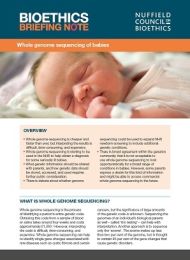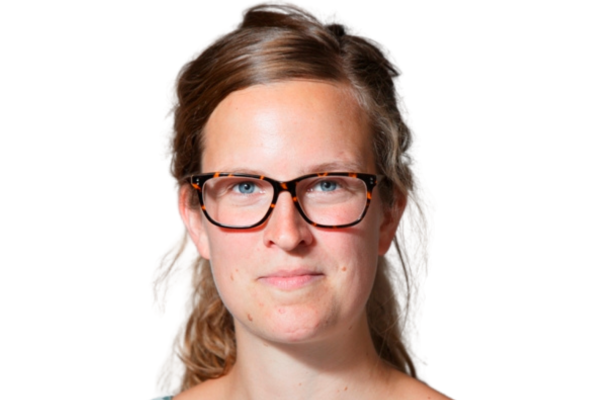Whole genome sequencing of babies
Policy Briefing
Published 27/03/2018

This briefing note explores the ethical issues raised by whole genome sequencing of babies.
Overview
- Whole genome sequencing is cheaper and faster than ever, but interpreting the results is difficult, time-consuming, and expensive.
- Whole genome sequencing is starting to be used in the NHS to help obtain a diagnosis for some seriously ill babies.
- What genetic information should be shared with parents, and how genetic data should be stored, accessed, and used requires further public consideration.
- There is debate about whether genome sequencing could be used to expand NHS newborn screening to include additional genetic conditions.
- There is broad agreement within the genetics community that it is not acceptable to use whole genome sequencing to look opportunistically for a broad range of conditions in babies. However, some parents express a desire for this kind of information and might be able to access commercial whole genome sequencing in the future.
Project team
Ranveig joined the NCOB in 2012 and leads the research and policy work in our Reproduction, Parenthood and Families priority area.
She has previously held communications and researcher roles at the NCOB, managing short projects on topics including surrogacy law reform, vaccine uptake and access, medical implants, experimental treatments, and AI in healthcare and research. Before that, Ranveig worked in communications for charities focussed on gun violence prevention and human rights.






Share